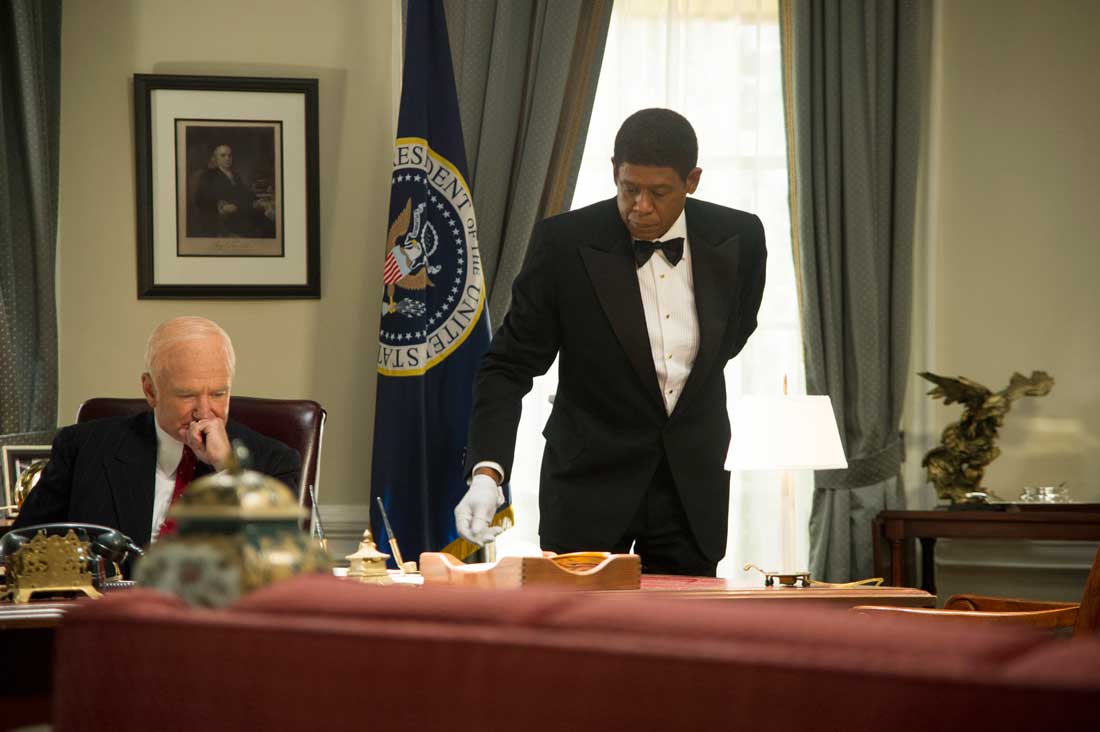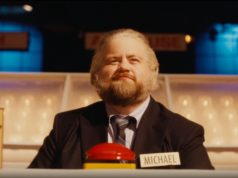The issue comes up again and again, and for good reason. Recent movies like The Help, Lincoln, Django Unchained, and 42 vary widely in quality, tone, and subject matter, but they have two things in common: They all address chapters of our nation’s history with regard to African-Americans, and they were all made by white people. One way African-Americans have been oppressed through history is by being denied the chance to tell history from their viewpoint. So the issue keeps coming up.
And so we have Lee Daniels’ The Butler, whose title includes the filmmaker’s name thanks to an infantile lawsuit brought by Warner Brothers. Based loosely on Wil Haygood’s Washington Post profile of a longtime White House butler, this film is the most ambitious historical epic directed by an African-American since Spike Lee’s Malcolm X a full 20 years ago. That alone would make it notable, but this ragged and uneven movie still has enough to recommend it on its own merits.
The title character is Cecil Gaines (Forest Whitaker), a cotton farmer’s son who leaves home in the 1920s after his father’s murder and finds work at a nice restaurant, where an older waiter (Clarence Williams III) teaches him the finer points of attending to the white customers: Anticipate their needs, don’t eavesdrop on their conversation, make yourself invisible. Cecil takes these lessons to heart as he eventually becomes a White House butler in 1957 and spends the next 30 years waiting on seven U.S. presidents.
Best known for directing Precious, Daniels possesses a considerable but volatile talent. He makes some strange casting choices with the actors playing the presidents — Robin Williams as Eisenhower? John Cusack as Nixon? More grievously, the filmmakers hold the viewer’s hand too much, with Cecil’s voiceover narration telling us what to think, a device that spoils a potentially powerful scene between Cecil and a blood-spattered Jacqueline Kennedy (Minka Kelly) immediately after her husband’s assassination. The movie indulges in soapiness and melodrama, too, particularly in Cecil’s domestic life, as his wife (Oprah Winfrey) becomes a resentful, cheating alcoholic while he spends long hours at work. Cecil’s blowup with his militant elder son Louis (David Oyelowo) is contrived, and the fate of his younger son (Elijah Kelley) is one of several shameless instances of Daniels yanking on the heartstrings.
Yet the large canvas allows for numerous supporting characters, and Daniels’ ability to handle actors shines through, with Cuba Gooding Jr. displaying sly wit as a bawdy fellow butler and Terrence Howard flashing disreputable charisma as Cecil’s shady neighbor. (Meanwhile, Jane Fonda plays a sympathetic Nancy Reagan, a savory piece of irony.) Individual scenes like the backroom bantering among the butlers are sharply written by Danny Strong, and Cecil’s last line of dialogue is wickedly funny. Daniels also delivers on some effective set pieces, like a montage of Louis learning nonviolent resistance tactics, intercut with Cecil serving at a state dinner.
The movie’s biggest accomplishment is allowing us to take a nuanced view of Cecil’s work, which early on has him quietly pouring drinks for a Southern politician who’s talking about shooting all the integrationists. Whitaker’s delicately pitched performance shows us a man who derives his sense of self-worth from his job and his proximity to power and refuses to jeopardize that. You understand why Louis thinks of him as a sellout, but you also understand why Cecil tamps down his true feelings, even without the scene where Martin Luther King (Nelsan Ellis) gently lectures Louis about the importance of black domestic workers. A good portion of the movie is given over to Louis defying his father by taking up a career as a civil-rights activist who’s radicalized by King’s assassination and then brought back to the mainstream by the Black Panthers’ violence. The complicated accommodation that Cecil eventually reaches with Louis is the movie’s emotional crest.
Like his real-life counterpart, Cecil lives to see a black man elected president, and just as he reflects on the arc of history, this movie makes me reflect on the arc of cinema. African-American filmmakers still don’t get the same opportunities as white directors, yet the varied viewpoints of F. Gary Gray, Kasi Lemmons, Denzel Washington, Antoine Fuqua, Forest Whitaker, Tim Story, Salim Akil, Dee Rees, and Ryan Coogler have taken African-American cinema to places we couldn’t imagine back when Malcolm X came out. By its existence and through its story, The Butler reminds us that there’s still progress to be made, but it provides a rousing look at how much has been achieved.
[box_info]Starring Forest Whitaker and Oprah Winfrey. Directed by Lee Daniels. Written by Danny Strong, based on Wil Haygood’s article. Rated PG-13.[/box_info]












